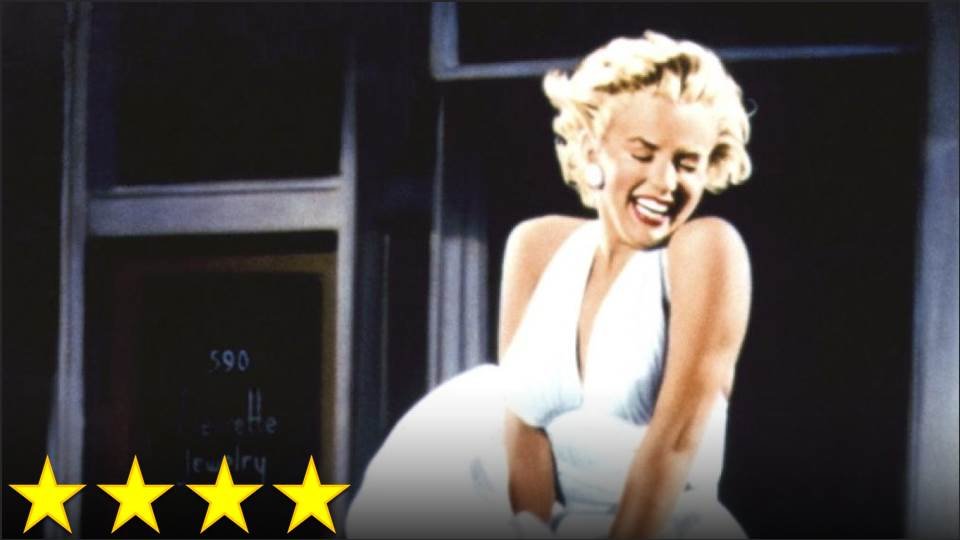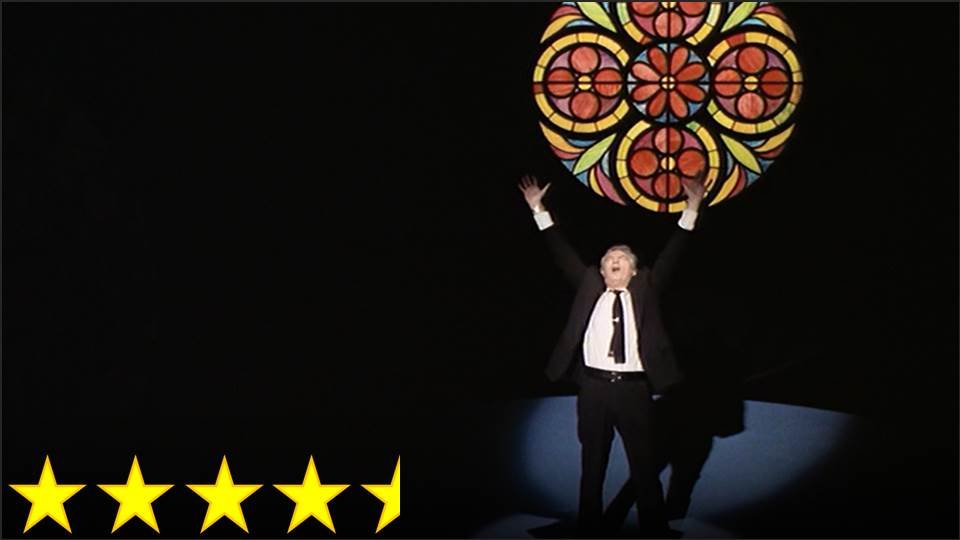This movie is often compared to Phantom of the Paradise, with fans of each film arguing about which is better. While I would certainly put myself on “Team Phantom” in this debate, I’m not sure that this is a fair comparison seeing as how they are so incredibly different. Phantom is careful and thoughtful, setting up a story that manages to be simple, yet detailed, derivative, yet surprising. Rocky Horror just happens. While it can be said that each film is something wild that happens to the viewer, Rocky Horror isn’t as focused on a story, a causal chain, a logic, a message, or an argument – it’s just things happening.
The kinds of things that happen are a mix. Some of the music is great and memorable, but a lot of it is completely forgettable. The soundtrack is largely just average ’70s pop, without much to make it stand out, so after a while it all runs together, and it becomes a little bit annoying when one song ends only for another to begin. In a way, however, this is part of the beauty of the film. It doesn’t really care what it is, so long as it keeps on being whatever the heck it’s supposed to be. This ‘devil may care’ attitude empowers the film to be charmingly weird, with excellent visuals, bizarre humor, unconventional editing, random turns in the plot, inexplicable changes of character, and very memorable performances.
The structure is essentially a series of “Big-Lipped Alligator Moments.” Generally, a movie is supposed to have two kinds of transitions: “therefore” and “but then.” This film, on the other hand, has only one transition: “and now this is happening, and now this is happening, and now this is happening.” While the musical upon which this film is based is clearly the result of at least one “trip,” the movie feels like a dream – it feels mostly random and spontaneous, but there are important recurring themes and logical connections between different parts of the film (such as the appearance of Tim Curry in the wedding photos). The film offers no explanation for itself and no apologies – it just drags the viewer along for a wild ride with no questions asked, and for that I greatly appreciate it.






